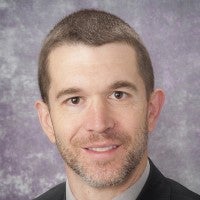4 weeks
Course Director
Gregory A. Watson, MD
Assistant Professor
Department of Surgery
watsong@upmc.edu
Course Director
Giselle Hamad, MD
Professor
Department of Surgery
hamadg@upmc.edu
Course Description
This is a 4-week course which satisfies the Boot Camp and Integrated Life Science requirements. It is suitable for fourth-year medical students and will be especially valuable for those who have matched into a surgical residency. The course is offered in one block only.
The course will take place Monday-Friday with morning and afternoon activities including precepted anatomic dissections, various imaging modalities, and clinical pathology. The areas to be covered include anatomy of the digestive tract, gynecologic and genitourinary anatomy, and thoracic anatomy (i.e. cardiopulmonary). All students are exposed to the diagnostic modalities appropriate for each anatomic area.
Participants will develop skill sets that are necessary for successful matriculation into a surgical internship. There will be interactive classroom sessions, skills lab training in both laparoscopic and open surgery techniques, team training and critical care management with simulators, and a mock page program. A wide range of topics will be covered, including management of common perioperative scenarios on the surgical ward, wound care, suturing, surgical instrumentation, minimally invasive surgery skills, trauma resuscitation, and many others.
This course provides an opportunity for students to obtain the tools needed for entrance to surgical internship with confidence, with the intention of enhancing patient care, improving patient safety, decreasing the residents’ anxiety, and improving their efficiency.
Goals & Objectives
Following the completion of this course the student will be able to:
- Correlate clinical findings with imaging studies, pathophysiology, pathology, and anatomy
- Perform basic surgical skills such as wound closure, wound care, knot tying, suturing, and laparoscopic camera driving
- Understand management of nasogastric tubes, chest tubes, drains, vacuum-assisted closure devices
- Perform prepping, draping, and know how to utilize basic open and laparoscopic instrumentation
- Manage common perioperative inpatient problems
Educational Methods
- Hands-on workshops
- Imaging experiences
- Student case presentations
- Mock paging experiences
- Lectures in anatomy, pathology, and imaging modalities
- Precepted anatomical dissections
This course involves lectures and skills lab sessions, but no direct patient care, on-call, or weekend duties.
Evaluation
Evaluation is based on attendance.
Grading is Satisfactory / Unsatisfactory.
Faculty Note
Giselle Hamad, MD, is the Charles Gray Watson Professor of Surgical Education and Professor of Surgery and member of the UPSOM Academy of Master Educators. She serves as an Advisory Dean and has received the Chancellor’s Distinguished Teaching Award, the Donald Fraley Mentorship Award, the Clinical Educator of the Year Award, and multiple Clerkship Preceptor of the Year Awards.
Gregory A. Watson, MD is a recipient of the Clinical Educator of the Year Award and multiple Clerkship Preceptor of the Year Awards.
Jack Schumann, PhD, is the recipient of the Kenneth E. Schuit Master Educator Award; the Sheldon Adler Award for Innovation in Medical Education; multiple Excellence in Education Awards, including for Outstanding Course Director and for Lecturer; the Pre-Clinical Golden Apple Award; and multiple Golden Apple Awards.
